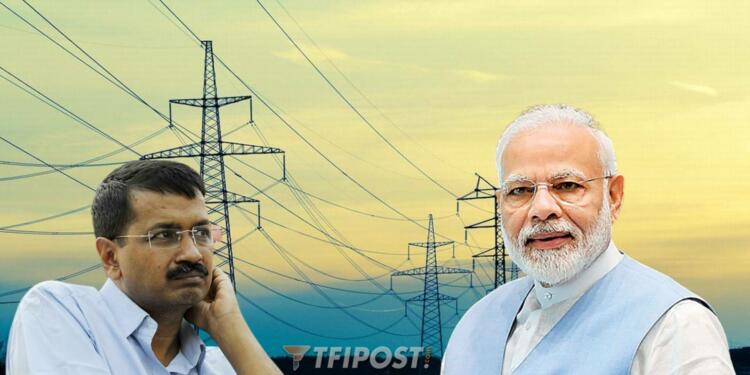Freebies have become a menace in India. The culture has put a bad reputation on the concept of welfare state altogether. The electricity sector is also one of them where this infamous ‘Revadi Culture’ has reached. A radical change was required to course correct and the Modi government may have hit the nail right on the head.
Electricity amendment bill in standing committee
On Monday, 8th of August, Electricity Amendment Bill-2022 was tabled in Parliament. The bill seeks to transform the way in which companies provide us electricity and how we consume it. As expected, it was subjected to fierce opposition from almost every political party on the other end of the spectrum. These parties include Congress, Left parties, TMC and DMK among others. The bill has been referred to the parliamentary standing committee on energy for wider consultations.
The Electricity Amendment Bill-2022 is being termed contentious for many reasons. On the face of it, naysayers are talking about it being anti-federal, anti-Constitution and many other names, but the real reason behind its opposition is somewhat different. This Bill seeks to end the socialist era of Babus and their patron Netajis. In other words, the amendment is aimed at ensuring that consumers have a wider pool to choose their distributors from.
Will increase competition
The Electricity Amendment Bill-2022 has provisions to amend Section 14 of the Electricity Act to bring more parity in distribution networks. If this Bill in its current form takes the shape of law, then all licensees will be able to use distribution networks, even in other distribution licensee’s networks.
The amendment is designed to increase competition, ultimately leading to improved service accessibility to consumers. Similar goals will be achieved through amending Section 42 of the act.
Cross subsidisation sorted
By inserting Section 60A in the Act, the Modi government is attempting to streamline power purchasing and subsidisation in the sector. Currently, various populist governments have created a problem called cross-subsidy in the sector.
Cross subsidisation is the practice of charging higher prices to one type of consumer to artificially lower prices for another group. To provide freebies, a particular group of consumers is charged higher than normal. If the Electricity Amendment Bill-2022 is passed, this problem will be solved.
Balance between free market and legislation
Though the Electricity Amendment Bill-2022 provides for easier introduction of the private sector, it also has provisions to strike a balancing line between free market and legislative orders. By amending Section 62 of the act, the government has made it compulsory for graded revision of tariffs over the years. However, at the same time, appropriate commissions have been mandated to fix a maximum ceiling and a minimum tariff.
The very fact that the private sector will be competing for providing electricity is not digestible to anyone even closely benefitting from the freebie culture in the sector. Throughout the last 7 and half decades, politicians have gained votes by promising free electricity to various groups. While some of them like Farmers, key industries needed it, the revadi culture ended up hurting state coffers more than it increased its productivity.
Debts owed to companies
According to a report by the Power Ministry, states have to pay about 1 lakh crores to power generation companies. Maharashtra with Rs 21,656 crores, Tamil Nadu with ₹ 20,990 crores, Andhra Pradesh with ₹ 10,109 crores Telangana with ₹ 7,388 crores and Rajasthan with ₹ 7,388 crores are some of the major debtors of these companies.
Similarly, out of about 60 thousand crores outstanding to power distribution companies, Telangana has to pay ₹ 11,935 crores while Maharashtra needs to pay ₹ 9,131 crores. Andhra Pradesh with ₹ 9,116 crores and Tamil Nadu with ₹ 3,677 crores are not far behind.
All these problems have been caused because governments did not ask their voters to use the free electricity efficiently. Rather than taking course corrective measures, governments are enabling more and more free electricity, sometimes to the tunes of free electricity over months. The new bill will change that.
If you have any doubt over the efficacy of the bill, then just keep in mind that Arvind Kejriwal is opposing the Electricity Amendment Bill-2022.
Support TFI:
Support us to strengthen the ‘Right’ ideology of cultural nationalism by purchasing the best quality garments from TFI-STORE.COM

























